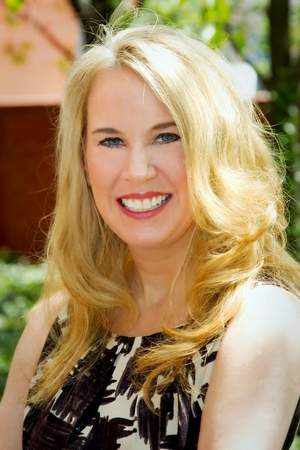
A pivotal event in a young girl’s life can sometimes set the course of her career.
Jocelyn Elise Crowley’s parents split when she was 7 years old. Watching her stay-at-home mom struggle to adjust to changing circumstances triggered a lifelong interest in parenting challenges and public policy, women’s rights, family law, as well as workplace flexibility.
Crowley is Professor of Public Policy at the Edward J. Bloustein School Planning and Public Policy at Rutgers University, a member of the graduate faculty in the Department of Political Science, and an affiliated faculty member of the Department of Women’s and Gender Studies. She has done extensive research on the lives of women, some of whom remind her of her mother.
“After my parents’ divorce, my mother had to go back to work,” Crowley said. “The first couple of jobs, secretarial work and her job at Sears, were temp jobs without benefits or sick days. When my sister and I got sick, my mother would lose a day’s pay if she stayed home with us.
“All of these experiences in my childhood really motivated me to think about these issues, and I ultimately got my Ph.D. in political science from the Massachusetts Institute of Technology (MIT).”
In the late 1970s, child support programs and policies were not strong, Crowley added, which made life very difficult after her father left.
“My grandparents stepped up and helped my mother get relief with childcare,” she noted.
Born in Englewood, Crowley and her family lived in Franklin Township for six years before moving to Warren Township. She graduated from Watchung Hills Regional High School as class valedictorian in 1988.
Crowley feels fortunate that her mom was able to keep their house so she could remain in the same school district after the divorce. Her mother eventually got a master’s degree and an administrative job with the state.
In her latest book, “Mothers Unite! Organizing for Workplace Flexibility and the Transformation of Family Life,” published by Cornell University Press, Crowley advocates changing the relationship between home and the workplace to give all mothers greater flexibility. A global commitment to workplace flexibility would benefit companies as well as mothers who stay home, mothers who work part time, and those who work full time, the professor argues.
Crowley analyzes five diverse national mothers’ organizations: Mothers & More, which supports mothers moving in and out of the paid work force; Mothers of Preschoolers (MOPS), which promotes Christian values; Mocha Moms, which aims to assist mothers of color; MomsRising, which focuses on online political advocacy; and the National Association of Mothers’ Centers (NAMC), which highlights community-based networking.
She points to opportunities for these groups to come together, suggesting actions that would unite and mobilize mothers of all stripes in the battle for greater workplace flexibility.
“In interviews with mothers working for pay, and those who stay at home and will most likely return to paid work,” Crowley said, “I found there was so much commonality between and among them in what they want as their ideal job.”
Eschewing the “mommy wars,” Crowley said differences blown up by the media were not supported by her research.
“Across the board, they all told me that having some kind of job flexibility would be important to their happiness,” she continued.
They all talked about these important factors: First, the ability to take emergency time off, Crowley said. As well, they want flexible work arrangements, including the freedom to telecommute, adjust work hours and compress work schedules.
“They all shared this commonality of wanting to be in the work force and also wanting to be the best parent they can be,” Crowley added. “More things bring moms together than divide them.”
Employers also benefit, Crowley noted.
“Research shows that workers with these options tend to be more productive, healthier mentally and physically, and happier,” she added. “If mothers are not afforded these opportunities, they have to make some difficult choices.”
Among the programs and policy measures supported by mothers in the five groups — educating businesses on the “win-win” windfall of workplace flexibility, and drumming up support for governments to increase tax incentives for businesses that prioritize flexible work schedules.
“Though the five groups I studied have mostly white, middle-class women, workplace flexibility is just as important to low-income and working-class women of all backgrounds,” Crowley said. “Hourly workers often can’t plan for childcare because schedules aren’t posted in time, and there’s usually no advance notice regarding overtime.”